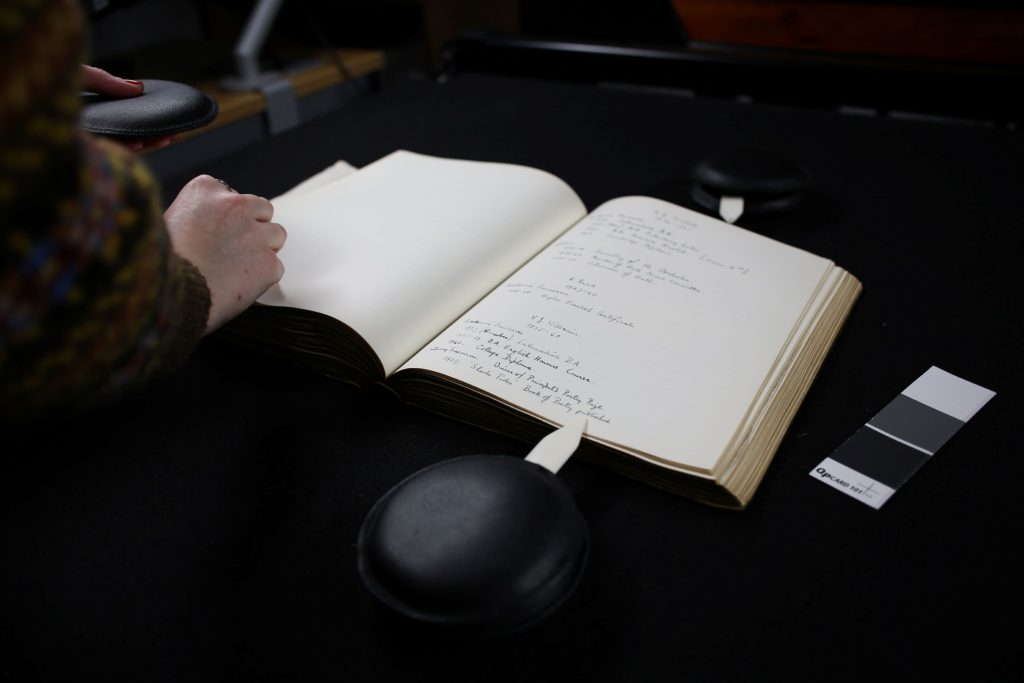What a year! I have loved working at the Digital Humanities Lab over my third year at Exeter – I have had the opportunity to try so many different activities and have seen a side of the History Faculty and Department I would not normally get to experience as a student. Most enlightening has been the gradual process of understand just how much work goes into conserving and storing the documents we use in our daily studies, and it has given me a new appreciation for the feat of achievement of many of our digital archives. I have particularly enjoyed working with the Drama department’s new Podcasting studio; its accessible format and set-up making it really easy to create podcasts with other students and friends, and I hope to continue this project in my career as a way of enjoying more public debates on history. The most useful advice I could give to someone applying to the Lab or who has already got a place on the internship team is to try everything – and to not be afraid to ask questions. All the staff are super friendly and helpful, and it’s always a great idea to start off slow, learn the techniques properly and learn how to best use and approach each type of archival material, giving you the skills to work more efficiently as the year progresses.
A typical day in the Lab starts with me digitising the most recent documents, photographs or journals that have been brought in – I have partially loved digitising a collection of journals written in the late 1800s by local Devon women, to showcase their artistic, literary and poetic skill. Working with this was challenging, especially as the books were often badly bound or produced on thin, cheap paper, and so they had to be handled slowly and carefully. I used my training from the Special Collections team to plan how to approach each challenge in digitising such a varied type of document. I have also enjoyed seeing the various people and departments who use the Labs photography and recording equipment on a weekly basis to improve course delivery and structure. Learning how to integrate these technologies into future education approaches and lesson planning is the future of education, and will open up the Humanities to a much greater variety of abilities, learning approaches and stages- and as a protective future teacher this has been truly exciting to experience first-hand and have a ‘hands on’ impact on digitisation delivery at the University.
I have really enjoyed my time at the Lab, and can’t recommend enough applying for an internship – you’ll lean so much about the complex and intriguing world of document preservation, and get a new-found appreciation for our brilliant archives and libraries.

